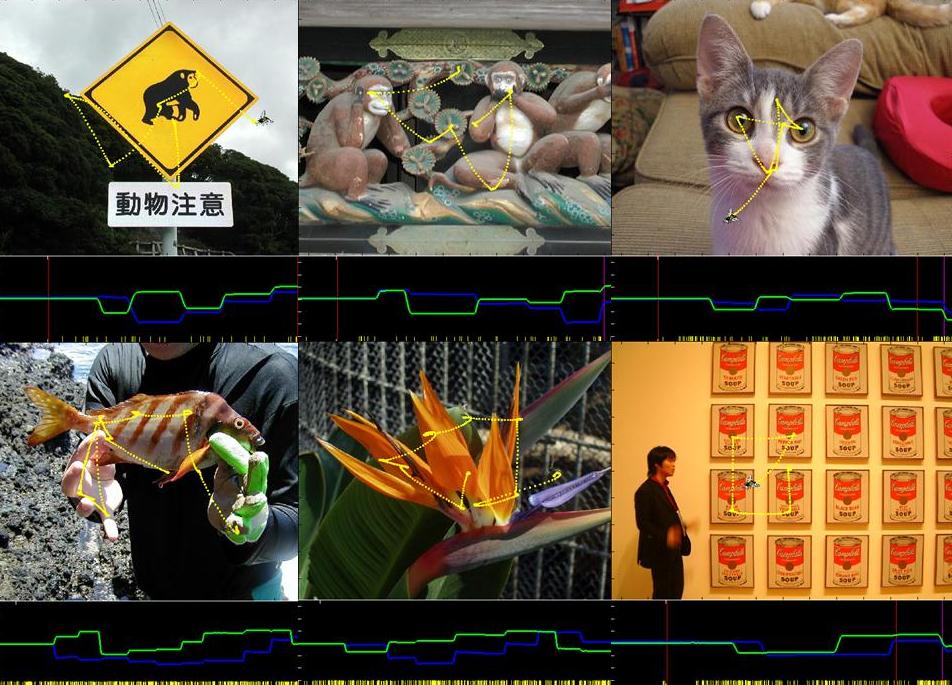Research
General Interests:
Systems, Cognitive, and Computational Neuroscience; Sensorimotor Integration; Control of Eye Movements in Mice and Primates; Neural Basis of Decision-Making; Neural Substrates for Visual Search
Areas of Research Focus:
1) Neural Mechanisms of Fixation Choice while Searching Natural Scenes
Major collaborator: Konrad Kording, Ph.D.
In these experiments, we use rhesus monkeys as a model to address questions concerning the cognitive control of eye movement behavior. Our overall goal is to understand how the brain controls where we look. To accomplish this, it’s important to study brain activity and behavior under conditions that approximate those in the real world.
Searching for targets in the real world is a complex process consisting of multiple stages: 1) We make many saccades to explore the environment; 2) In the meantime, we are trying to recognize potential targets; 3) Once we recognize a target, we stop exploring and exploit by making a saccade to capture the target. Although we know a great deal about the neural substrates for the control of single saccades made to a limited number of potential targets, we still understand little about the neural mechanisms responsible for eye movement strategies that produce a continuous series of self-generated eye movements in the rich environment of a natural scene.
Ongoing work, obtained using natural scene search paradigms, suggests that frontal eye field (FEF) neuron activity is directly related to the development and execution of eye movement strategies, including planning efficient search movements during exploration, detecting search target location, and distinctly controlling exploratory and exploitative saccades.
